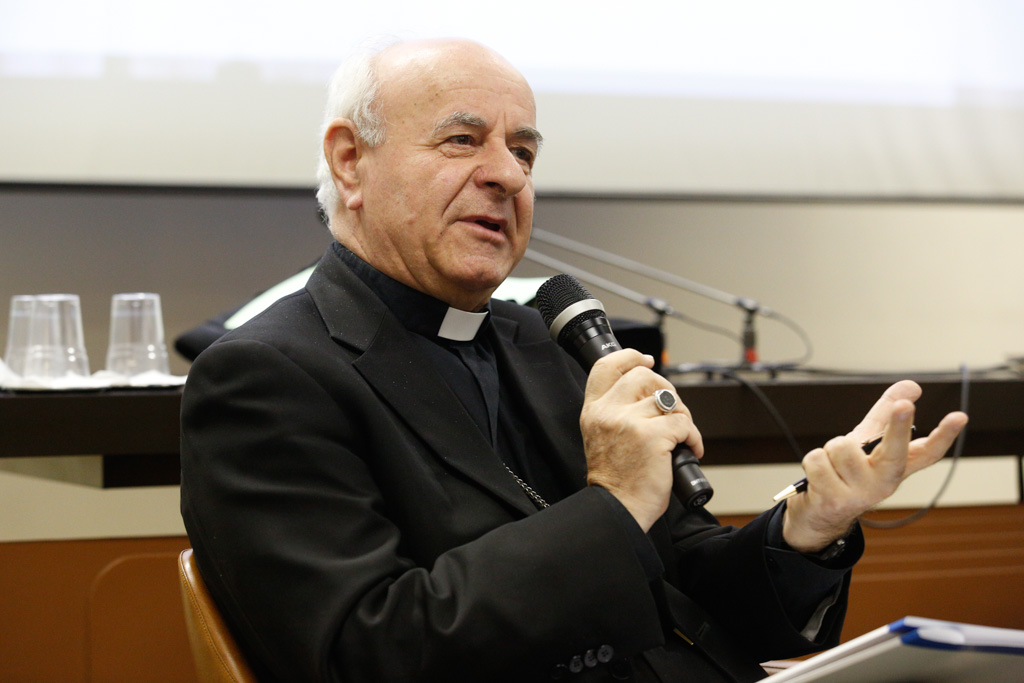
Q1: Could you tell us about your encounter with the Maruzza Foundation and Palliative Care?
A1: It was a meeting that I would define as ‘providential’. In 2015, Pope Francis had invited the Pontifical Academy For Life to study the theme of Palliative Care in greater detail. In 2016, when I was appointed its President, I immediately and eagerly undertook the Pope’s solemn bidding.
It was on this journey that I encountered the Maruzza Foundation and its work on Paediatric Palliative Care, which is truly ‘at the coalface’, on the problematic frontline of suffering that affects the youngest, most vulnerable individuals and their families, who all have need of our scientific and human sapience. For myself, the encounter with the Maruzza Foundation represented something very normal, a natural collaboration on an important issue. As I was saying, I consider a presence such as that of the movement for Palliative Care to be providential, in all its facets, from essential healthcare provision to the scientific-cultural aspects. The movement for Palliative Care represents an active and productive force in our societies, which reminds us where human dignity lies; that of people suffering from illness, and those caring for them, because, only in solidarity, the latter fully recognize the need of their own dignity. The Maruzza Foundation’s commitment to Paediatric Palliative Care is fundamental and, in this sense, I declare my complete propinquity.
Q2: In your opinion, what role did the Charters of the World Religions, born from the collaboration between the Pontifical Academy For Life and the Maruzza Foundation, have in stimulating the debate on the importance of Palliative Care and Paediatric Palliative Care?
A2: I remember well your workshop on the 30th of March 2017, on Palliative Care and the guidance of religions, in which I participated.
Since then, it has become increasingly crucial to rekindle solidarity between peoples of every condition and of all faiths. It is also one of the priorities that Pope Francis indicates to the contemporary world. The ecumenical and interreligious perspective that characterizes the activities promoted by the Maruzza Foundation recalls the universal brotherhood celebrated in God’s plan for the world that is particularly dear to the Holy Father. For this reason, the Pontifical Academy For Life, myself personally and the entire Academy, regards the Maruzza Foundation’s commitment with admiration and gratitude. Palliative Care responds to the rationality of receiving and accompanying the infirm and vulnerable, both young and old.
It is a theme closely linked to the commitment of religions to the humanization of particularly vulnerable existences and an ever-greater acceptance of life. If people today talk more about Palliative Care, in Italy and beyond, it is thanks to the commitment of many and the leading role played by the Maruzza Foundation. Paediatric Palliative Care encompasses the many healthcare services provided to children and their families coping with a diagnosis of a serious illness. Furthermore, it supports the wishes of mothers and families to welcome their child at birth and to celebrate his or her life. In this context of immense love for life, the purpose of Paediatric Palliative Care is to provide vital support for young patients, which respects their dignity as a person without shortening or prolonging their life.
Q3: In 2022, you were awarded the Ventafridda Prize for your commitment to Paediatric Palliative Care. The attainment of which goals are key to achieving the best quality of life possible for children with incurable illness and their families?
A3: Raised awareness of Palliative Care is an undertaking to which each of us must commit. In recent years, we have produced several publications (in particular The White Book for Global Palliative Care Advocacy), and organised some focused symposia. I have just returned from an event in Canada co-organized with the country’s Episcopal Conference. The main objective remains enhanced awareness of Palliative Care in its dimension of care provision and relief from pain, physical, psychological and spiritual suffering for the patient and family. In this sphere, Paediatric Palliative Care is an extremely delicate and challenging issue. We must invest our greatest energies in this field to improve care provision and to increase the number of services dedicated to alleviating terrible suffering. Hence, I would confirm at least two objectives: additional and enhanced information, and more regional centres equipped to provide dedicated care and relief from suffering.
